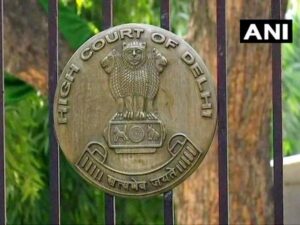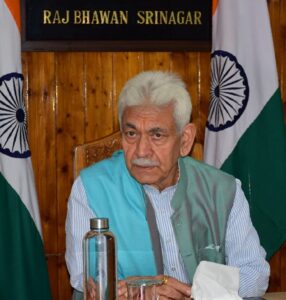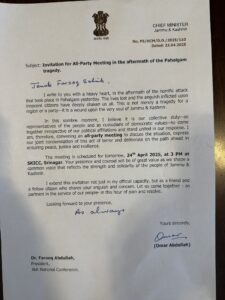As Delhi chokes, SC directs Punjab, Haryana, UP, Rajasthan to immediately stop crop residue burning
New Delhi, Nov 7 (PTI) Amid a spike in pollution levels in Delhi-NCR, the Supreme Court on Tuesday directed Punjab, Haryana, Uttar Pradesh and Rajasthan to ensure crop residue burning was stopped “forthwith”, saying it cannot let “people die” due to pollution.
“I am sorry, this is complete murder of health of people, there is no other phrase I have,” said Justice Sanjay Kishan Kaul, who was heading the bench which also comprised Justice Sudhanshu Dhulia.
Taking a stern view of states trying to shift blame to one another for the pollution, the bench observed there cannot be “political battle” all the time.
The apex court’s observations came a day after the Delhi government announced its decision to implement odd-even traffic restriction plan from November 13, a day after Diwali, when pollution levels are likely to shoot up even further
While hearing a matter pertaining to the debilitating air pollution in the Delhi-National Capital Region (NCR), the bench flagged issues like crop residue burning, vehicular pollution and burning of waste in the open.
The top court is seized of a plea filed in 1985 by environmentalist M C Mehta on air pollution and the issue of crop residue burning cropped up during the hearing of the PIL.
Expressing concern over widespread stubble burning which were not stopping following paddy harvest, the bench said, “The concern is this… these farm fires are not stopping. What action the states are taking to stop the farm fires?”
“Delhi cannot be made to go through this year after year,” it said.
The counsel appearing for Punjab claimed incidents of crop residue burning have come down by 40 per cent since last year.
“We want to stop all this. We don’t care how you do it. It is your business how to do it. It must stop,” the bench told the counsel, adding, “You have to stop it, whether by forceful action, sometimes by incentives, sometimes by other actions, but you have to stop it.”
“We cannot let people die because of this (pollution),” the apex court said while referring to the health related issues being faced by people due to rise in pollution levels.
It said residents of Delhi have been grappling with health issues at this time of the year, year after year, because a solution to the problem has not been found.
The bench also directed the Delhi government to ensure that municipal solid waste was not burnt in the open.
“We direct the state government of Punjab and for that matter, all other states adjacent to Delhi, which is Haryana, Rajasthan and UP to ensure that crop burning is stopped forthwith,” it said.
The bench made the local station house officer (SHO) concerned, under the overall supervision of the chief secretary, responsible for stopping crop residue burning.
The top court observed it was not saying that crop residue burning was the only contributor to pollution but it was a significant factor during this time of the year.
It has posted the matter for further hearing on Friday.
Pollution levels in Delhi were recorded in the “very poor” category on Tuesday morning after five consecutive days of severe air quality.
The concentration of PM 2.5, the fine particulate matter capable of penetrating deep into the respiratory system and triggering health problems, exceeded the government-prescribed safe limit of 60 micrograms per cubic metre by seven to eight times in the capital.
It was 30 to 40 times the healthy limit of 15 micrograms per cubic metre set by the World Health Organization (WHO).
Several cities in neighbouring Haryana, Rajasthan, and Uttar Pradesh have also reported hazardous air quality. Ghaziabad recorded an Air Quality Index (AQI) of 338, Gurugram 364, Noida 348, Greater Noida 439 and Faridabad 382.
Noting that air pollution persists in the national capital despite several remedial steps having been taken by the Commission for Air Quality Management (CAQM), the Supreme Court had on October 31 directed Delhi, Punjab, Haryana, Uttar Pradesh and Rajasthan governments to file affidavits enumerating measures initiated by them to control it.
Observing that until a couple of decades ago this was the best time in Delhi, the court had said the city was now marred by worsening air quality and it was difficult to even step outside the house.
The top court had earlier sought a report from the CAQM on steps being taken to control air pollution in and around Delhi.
The CAQM is an autonomous body tasked with improving the air quality in Delhi and its adjoining areas.






